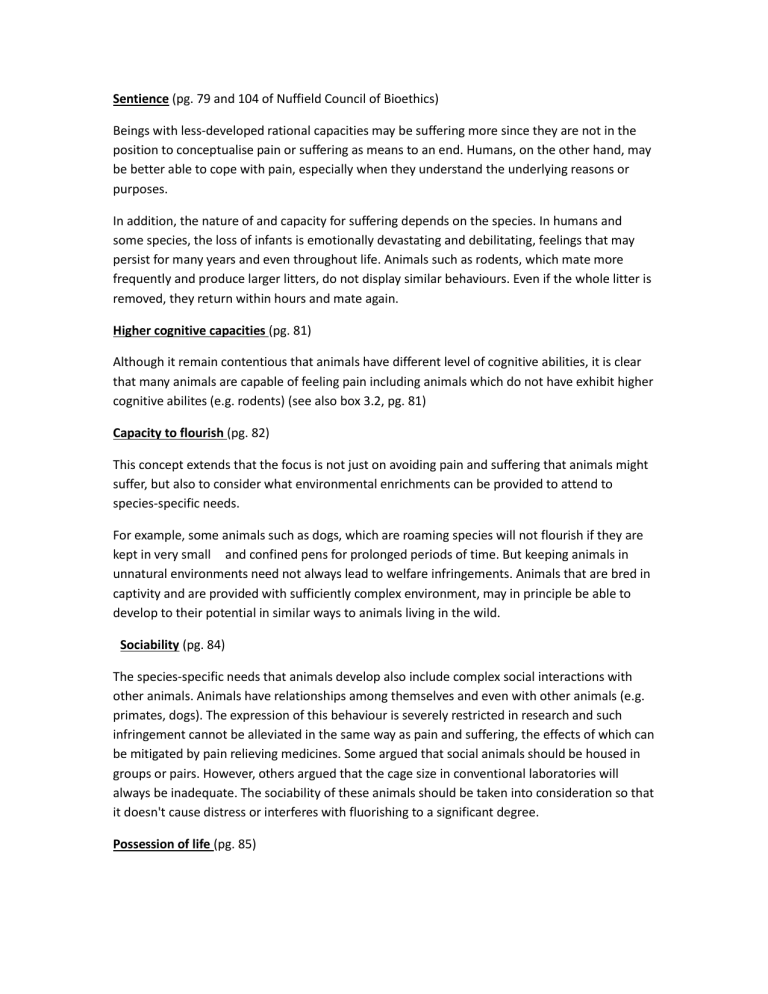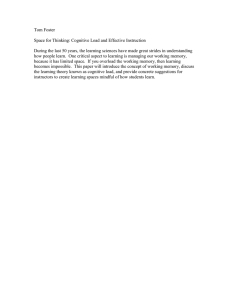
Sentience (pg. 79 and 104 of Nuffield Council of Bioethics) Beings with less-developed rational capacities may be suffering more since they are not in the position to conceptualise pain or suffering as means to an end. Humans, on the other hand, may be better able to cope with pain, especially when they understand the underlying reasons or purposes. In addition, the nature of and capacity for suffering depends on the species. In humans and some species, the loss of infants is emotionally devastating and debilitating, feelings that may persist for many years and even throughout life. Animals such as rodents, which mate more frequently and produce larger litters, do not display similar behaviours. Even if the whole litter is removed, they return within hours and mate again. Higher cognitive capacities (pg. 81) Although it remain contentious that animals have different level of cognitive abilities, it is clear that many animals are capable of feeling pain including animals which do not have exhibit higher cognitive abilites (e.g. rodents) (see also box 3.2, pg. 81) Capacity to flourish (pg. 82) This concept extends that the focus is not just on avoiding pain and suffering that animals might suffer, but also to consider what environmental enrichments can be provided to attend to species-specific needs. For example, some animals such as dogs, which are roaming species will not flourish if they are kept in very small and confined pens for prolonged periods of time. But keeping animals in unnatural environments need not always lead to welfare infringements. Animals that are bred in captivity and are provided with sufficiently complex environment, may in principle be able to develop to their potential in similar ways to animals living in the wild. Sociability (pg. 84) The species-specific needs that animals develop also include complex social interactions with other animals. Animals have relationships among themselves and even with other animals (e.g. primates, dogs). The expression of this behaviour is severely restricted in research and such infringement cannot be alleviated in the same way as pain and suffering, the effects of which can be mitigated by pain relieving medicines. Some argued that social animals should be housed in groups or pairs. However, others argued that the cage size in conventional laboratories will always be inadequate. The sociability of these animals should be taken into consideration so that it doesn't cause distress or interferes with fluorishing to a significant degree. Possession of life (pg. 85) Some argued that humans and animals of similar cognitive abilities generates a right to life. However, this view does not command wide agreement. Proper moral treatment of a being depends on the characteristics it possesses, rather than simply on the species to which it belongs. It can be argued that animals that possess one, or several, of these features of sentience, higher cognitive capacities, capacity for flourishing and sociability, are moral subjects and any treatment infringing on one of the features requires careful justification.



